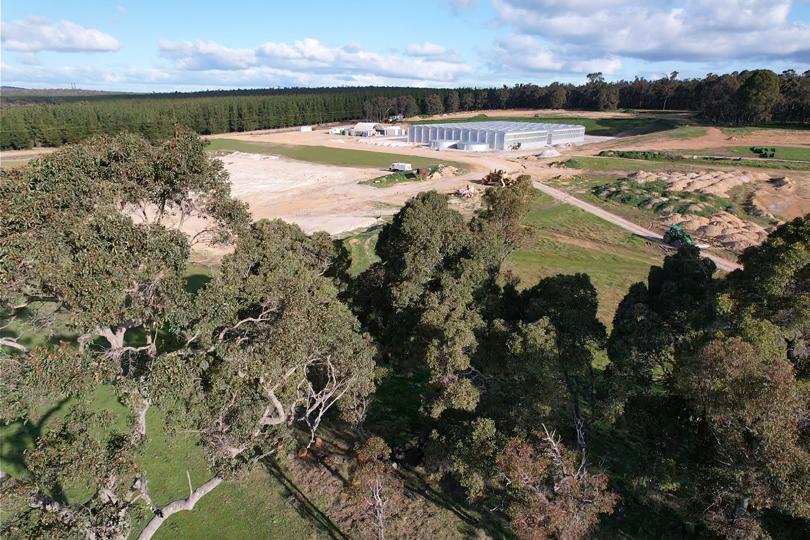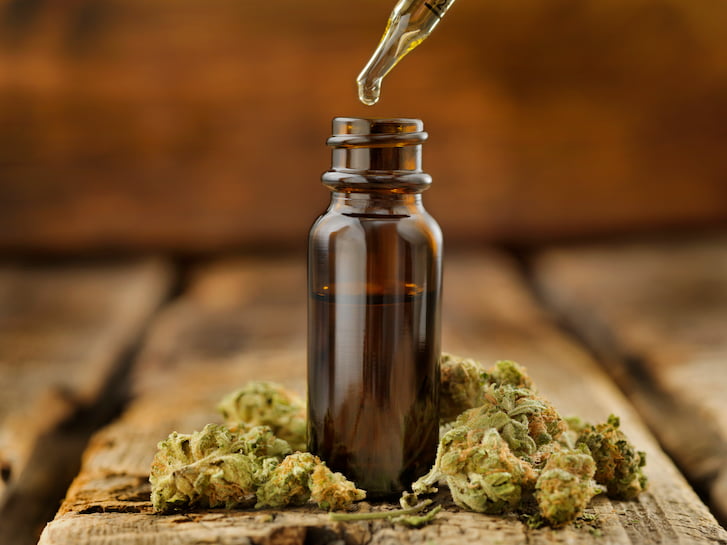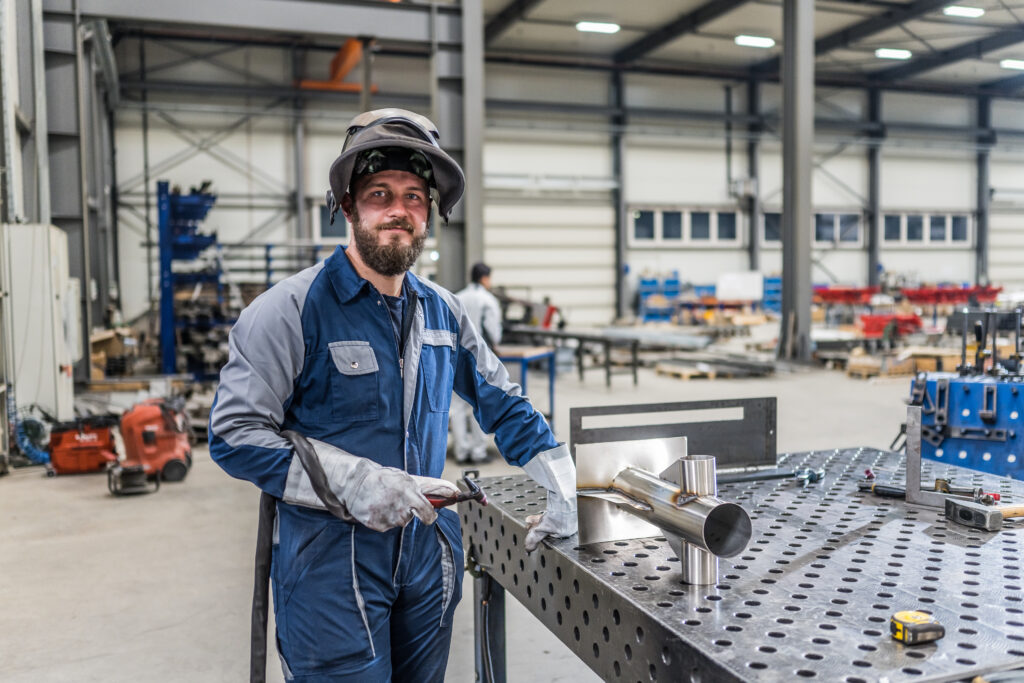Medical cannabis company Cannaponics is embarking on a bold mission to use ‘people, planet and profit’ to fulfill the growing demand for a premium grade product for pain relief.

Photo courtesy of Cannaponics.
It is building a world-class growing, processing, manufacturing and distribution facility in Collie, Western Australia, which is due to start producing around March to June 2024.
Cannaponics says it offers an environmentally sustainable investment opportunity in the emerging and rapidly growing medical cannabis industry.
“We’re looking for collaborations and partnerships with companies nationally and abroad to take advantage of the potential of where this industry can go,” says Rod Zakostelsky, Cannaponics Founder and Managing Director.
“We’re in the business of making people’s lives better, creating jobs in new industries and encouraging social equity, and then working towards pushing our profit to evoking emotion to assist the business today for a better tomorrow.”
The business takes pride in being a ‘good agricultural and collection practices’ (GACP) grower and a ‘good manufacturing practices’ (GMP) manufacturer.
Cannaponics is listed on WA Investments*, where it is seeking $10-40 million to “future proof” its facility with new equipment.
“Purchasing more advanced equipment will enable us to further break down products to add value to our production line,” Zakostelsky says.
“We’re building a facility that’s going to make a profound difference to people’s lives. We’re part of a region [South West] that has new sustainable industries and to be part of that is a real pleasure.”
More diversity, less risk
The 65-hectare site includes a 4,000 square metre greenhouse and about 8ha of outdoor growing space.
Zakostelsky says having the two growing environments increases diversity in the business and reduces risk.
The outdoor crop is less capital intensive but carries greater environmental risk from the weather, pests and disease.
“We might get one to three cycles a year from the outdoor grow, depending on weather etc.,” he says.
“That product may not be suited to certain products but will be suitable to turn into biomass and to put it through an extraction machine to make oils and other downstream products.”
The fully-controlled greenhouse is higher cost but eliminates risks from temperature, humidity, watering and fertilisation, and light. Watering and fertilisation is via irrigation and sunlight can be replicated by various light dimming settings for optimal brightness, as well as creating full shade for flowering.
“This will be an environment for producing optimal yields,” Zakostelsky says.
“The varied growing conditions gives us two ends of the scale and future-proofing by having scale outside and consistent product inside.”
Cannaponics’ production target from the indoor and outdoor crop is 50 to 60 kilograms per day, equating to about 18 tonnes a year.
The company has also alleviated much of its supply chain risks by being a vertically integrated business [link to vertical integration article], as it controls growing, processing, manufacturing and distribution.
“Prior to COVID everyone was saying we should only do one part of the supply chain because it’s so expensive and hard to deliver, but then the pandemic happened and it brought with it all the supply chain issues, which cemented our decision,” Zakostelsky says.
Sustainable and self-sufficient

Cannabis plants require more water to grow than traditional crops grown in WA such as wheat, but Zakostelsky says the facility will have more than enough water.
The freehold land includes several reliable bores, a dam under construction and there is more than 7000m2 of roof space to utilise for water harvesting (estimated 11 to 12 million litres per year). Collie’s annual rainfall is about 600 millimetres.
“Our solar and water infrastructure further reduces our costs by addressing two of the three biggest components of cost – power, water and people – so this makes a big difference to our cost of doing business,” he says.
“We’ll also have blockchain traceability, which will allow buyers to track down not only what genetics the plant came from and what cannabinoids are in the profile of that plant, but also the other side so we can see that this product is consumed.”
Building an expert team
By the time Cannaponics begins production next year, it will have 35 to 45 staff. Zakostelsky expects this to increase up to 100 people as his long-term vision is realised.
Zakostelsky says sourcing workers has been “somewhat challenging” but is aided by the appeal of working in the South West.
“Being down south [of Perth] there’s a good pool of people that want to work in Bunbury or the South West,” he says.
“We have also invested in accommodation in Collie because we know no everyone wants to live here but people are happy to work away for two to four days a week and we’re providing that platform to enable that.”
A strong financial position
Some of the business’s most valuable assets, including land and equipment, were purchased pre-COVID.
Adding a $2m grant from the WA Government, Cannaponics is in a strong financial position as it gears up for production next year.
“We took advantage of pre-COVID pricing and although the next phase of construction is going to be capital intensive, everything on-site we already own – we are debt-free,” Zakostelsky says.
Servicing increasing demand

Photo courtesy of Cannaponics.
The crops take about 12 weeks to grow and the business plans to plant every six to seven days and harvest perpetually, which will give it consistent flow of product.
“A big challenge patients are facing at the moment is that they’ll be on certain prescription medications and then a particular company runs out because they’ve sold out or there were issues with growing, or whatever it may be,” he says.
“We want to alleviate that by having a constant flow of product of certain genetics. Once it’s harvested, it gets trimmed and then goes into trays to dry and with our technology, we’ll be able to dry batches in 30 minutes, as opposed to the conventional way which takes about 21 days and has more risk from bacteria.
“So, we could harvest in the morning and have it processed in the afternoon on the same day.”
Zakostelsky says investing in more advanced equipment will enable plant constituents to be separated into different formulations.
“Then we can start getting involved in different clinical trials, partnering with different universities and combining a product that was grown out here for trials, to see if we could potentially get a drug registered,” he says.
*WA Investments is a collaboration between CCIWA and Invest and Trade WA.
For information about showcasing your project or investment opportunities, please visit WA Investments.












